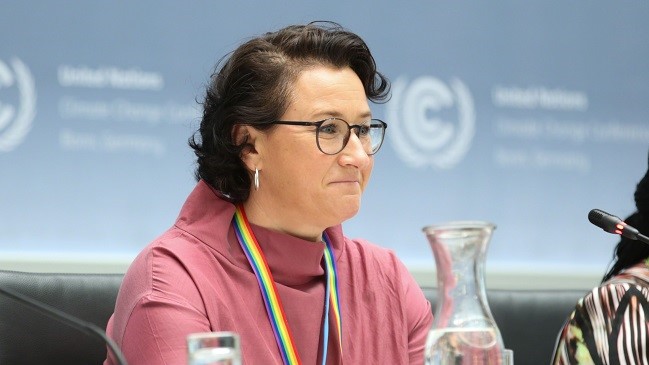Five countries – Grenada, Guatemala, Paraguay, Suriname and Uruguay – have presented their National Adaptation Plans (NAPs), demonstrating their commitment to build resilience to the inevitable impacts of climate change, which include more severe and more frequent droughts, storms and floods.

The plans were presented at the at the annual NAP Country Platform at the end of October 2020. The NAP Country Platform provides space for developing countries to present their NAP to highlight adaptation priorities and showcase how they will design implementation. This is also an opportunity to share good practices and lessons learned and promote collaboration with other countries.
Chair of the UNFCCC Subsidiary Body for Implementation, Ms. Marianne Karlsen, addressed the event and underscored the value of NAPs under the UNFCCC process.
“Today the NAPs provide an important avenue to communicate adaptation needs and priorities based on robust mapping of effects, impacts and risks associated with climate change. For countries, the NAP process is also an opportunity to align adaptation with overall sustainable development plans,” said Ms. Karlsen.
The five countries have submitted NAPs to the UNFCCC from April 2019 when the first NAP Country Platform was held. At present, twenty developing countries have shared their NAPs on NAP Central.
NAPs enable countries to present their priority adaptation actions
The NAPs highlighted key sectors prioritised for climate change adaptation action. Agriculture remains a common sector amongst the countries given its vulnerability to climatic changes.
Ms. Myrna Campoleoni introduced Uruguay’s plans for cities and agriculture, and how each is an important component of the country’s NAP. She underscored how the urban sector and the agriculture sector shape the country’s economy and hence their prioritisation.
Other sectors that were identified as priorities include energy, infrastructure, ecosystems, health, water and tourism.
The NAPs enable and strengthen country’s efforts in implementing adaptation actions
An important aspect of the process to formulate and implement NAPs is the implementation of policies, programmes and projects identified in the NAPs. Having a NAP is not an end in itself but serves as a starting point to properly lay down concerted actions for adapting to climate change in the medium to long term.
Ms. Kerry Hobson of Grenada presented how her country has aligned the priorities in the NAP with the Green Climate Fund (GCF) Country Programme and highlighted that several concept notes have been developed for project to be implemented through the GCF based on the thematic areas identified in the NAP.
Priorities contained in the NAP are used as basis for developing and submitting project proposal for funding under the GCF as shared by the representative of Uruguay.
Facilitating alignment with national development context, NDCs and other frameworks
NAPs present an opportunity to coordinate efforts on development and adaptation, including linkages and alignment with national development context, NDCs and other frameworks.
Ms. Jennifer Zamora of the Government of Guatemala emphasised how they have established an institutional arrangement that would enable the seamless exchange of information on what goes into their NAP and other instruments under the Convention.
The Paraguay NAP highlighted the operational structure for implementing the priorities identified in the NAP, and how sectoral plans and local adaptation plans were developed as part of the umbrella NAP.
Ms. Nora Paez of Paraguay underscored that strengthening the roles of local governments is a key pillar in the country’s NAP.
Ms. Yvette Paterzon of Suriname presented how their NAP implementation roadmap aligns with their national development priorities.
Representatives of UN agencies and organisations that actively supports countries on NAPs showed their willingness to continue to provide support to countries as they moved towards implementation of the adaptation actions identified in their NAPs.
FAO and UNEP, speaking at the end, shared how they are supporting countries in the region and what services they could offer to help countries package projects for funding.
Mr. Kénel Delusca, Vice Chair of the Least Developed Countries Expert Group, congratulated the countries for the successful milestone of submitting their NAPs, and the active work each are doing in implementing the adaptation priorities contained in them.
